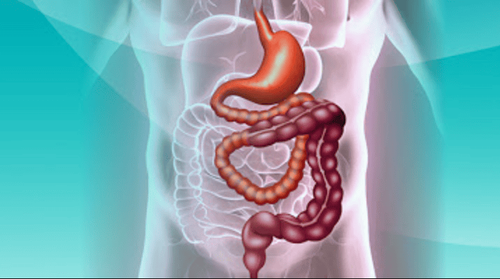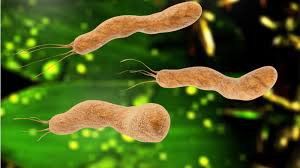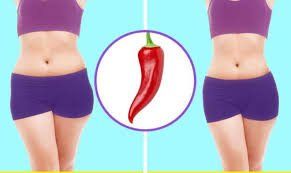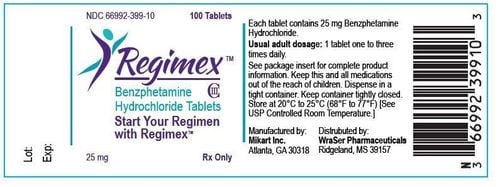This is an automatically translated article.
In a meal without chili can make some people have no appetite and want to eat other foods. So does eating spicy food bring health benefits or not? The article will analyze the benefits as well as the harms of eating spicy.1. Some Benefits of Eating Spicy
Is spicy food good? This is a question that is always asked by many people. Because it is an indispensable spice in meals, especially in winter. The benefits of eating spicy can be mentioned as follows:
1.1. Spicy foods can keep your heart healthy
People who eat red peppers have been shown to have lower levels of LDL cholesterol, which is cholesterol that increases the risk of heart disease. Recent studies show that consuming these peppers is associated with a 13% reduction in mortality from heart disease and stroke.
Heart disease can also be caused by obesity and the compound capsaicin contained in chili peppers can help fight this condition.

Những người ăn ớt đỏ đã được chứng minh là có mức cholesterol LDL thấp hơn.
1.2. Spicy foods can promote weight loss and kickstart metabolism
More than two-thirds of adults in the US are overweight or obese. Doctors in the US have explained: Obesity can put you at higher risk of other diseases such as type 2 diabetes, high blood pressure, or hardening or narrowing of the arteries such as: Atherosclerosis.
In addition, weight gain is also caused by many contributing factors, such as: Inactivity, unhealthy eating habits, genetics, age or certain medications can play a role some. The compound Capsaicin found in chili peppers can help boost your metabolism, helping you burn more calories both at rest and during exercise, which means you can lose weight more easily. This is also a punishment for the question of whether spicy food is fat?

Hợp chất Capsaicin có trong ớt có thể giúp bạn có thể giảm cân dễ dàng hơn.
1.3. Spicy foods can be effective pain relievers
If you've ever bitten a chili pepper, you probably know the burning sensation that follows. When you apply this sensation to the nerves in your hands and feet, it can cause those nerves to lose sensation for long periods of time, while also helping to combat ongoing pain.
When used as a lotion or other topical cream, capsaicin causes a sensation of heat, stinging, and itching. However, over time, the nerves in your hands and feet will get used to the lotion and your ability to relieve pain will be less. Based on this, we can use the compound capsaicin to help cure diseases like arthritis and injuries.

Chúng ta có thể sử dụng hợp chất capsaicin giúp chữa các bệnh như viêm khớp và chấn thương.
1.4. Spicy foods can soothe the gut and keep it healthy
Your taste buds and gut may be more connected than you think. When you bite a pepper, capsaicin attaches to a receptor that communicates with other cells. That signaling process causes a nerve on your tongue to immediately send electrical impulses to your brain to send information that your tongue is hot or spicy.
The same receptor is found in the body's gastrointestinal tract. When capsaicin enters the body's digestive tract and attaches to the receptor, it produces a chemical called anandamide. Anandamide has been shown to be less likely to lead to inflammation in the gut, which can be caused by conditions like ulcerative colitis and Crohn's disease.
Capsaicin's gastrointestinal soothing effect may also keep the gastrointestinal tract tumor-free. It may be especially effective for people who are at high risk of developing intestinal tumors, such as: People with a family or personal history of tumors.
However, you need to be aware: Using fast food as a means of consuming your red peppers will reverse many of the beneficial effects by adding unnecessary fat to your diet. In addition, you should not abuse spices because it can increase gastric acid, causing heartburn.

Thức ăn cay có thể làm dịu đường ruột và giữ cho nó được khỏe mạnh, tuy nhiên, bạn không nên lạm dụng.
1.5. Spicy foods are good for longevity
Eating spicy food six or seven days a week, even just once a day, has reduced mortality by 14%, according to a large study by Harvard and China's National Center for Disease Control and Prevention .
1.6. Spicy foods fight inflammation
Curcumin, a compound in turmeric, can reduce inflammation in the body. In Ayurvedic medicine, the anti-inflammatory properties of ginger and garlic have been used for centuries to treat a wide range of ailments including: Arthritis, autoimmune disorders, and even in cases of symptoms such as headache and nausea.
Does spicy food have acne? If you use a moderate and moderate amount of spicy spice in your daily meals, this spice will bring many health benefits. However, when you abuse spicy food, you may experience acne, heat and burning. This may be because when the spicy content in the body is too much, it will absorb moisture, causing dry skin. At the same time, the skin's resistance will be reduced, making it more susceptible to external environmental factors that cause acne.

Khi hàm lượng chất cay trong cơ thể quá nhiều sẽ hút ẩm gây ra tình trạng khô da.
1.7. Spicy foods may even help fight cancer cells
Capsaicin - the active compound found in chili peppers, has been shown to slow down and kill cancer cells. A UCLA study found capsaicin inhibited the growth of prostate cancer cells in mice.
Capsaicin, the hot and spicy compound found in chili peppers, can cause intense short-term symptoms such as: Stomach pain, diarrhea, and vomiting in people who take too much of it. This is explained by overstimulation of the nervous system. However, this compound did not cause any permanent damage to the intestinal lining.
Although it was previously believed that spicy foods could lead to ulcers, current evidence has confirmed that capsaicin provides protection against the ulcer-causing pathogen - H. pylori. Capsaicin also acts as a pain reliever when applied topically or orally. So, if you are new to eating spicy food, you can gradually increase the amount of spicy food in your food.

Capsaicin cung cấp khả năng bảo vệ chống lại mầm bệnh gây loét - H. pylori.
1.8 . Spicy foods help kill bacteria
Cumin and turmeric have been shown by studies to have powerful antioxidant and antibacterial properties. In the daily diet containing these two ingredients will help fight harmful bacteria in the body.
2. Some dishes add spicy seasoning
2.1. Spicy avocado toast with eggs
Spicy avocado toast can be used daily.
2.2. Spicy Pumpkin Seeds
The key to healthy snacking is to use a combination of seasonings, protein, and healthy fats. You can try using spicy pumpkin seeds instead of other snacks.
2.3. Dill rice
When you have a feeling of discomfort or you need an additional side dish that is flavorful and mild for sensitive people, you can use dill rice.
Regardless of whether you eat sweet or savory, spices can be incorporated into any diet. However, it is necessary to supplement them in a healthy way. Because, they can stimulate both feel-good chemicals in the body: endorphins and dopamine. Therefore, this is the reason why you cannot give up the craving for spicy foods in your daily meals. What's more, using condiments with food can also help you cut down on unhealthy fats and easily added sweets as a convenient solution to taste.
Please dial HOTLINE for more information or register for an appointment HERE. Download MyVinmec app to make appointments faster and to manage your bookings easily.
References: pennmedicine.org, healthline.com












